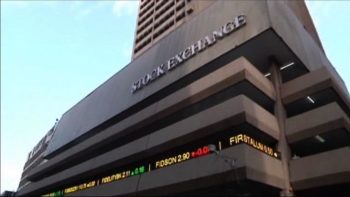
The Nigerian Stock Exchange (NSE) expects a bill that will allow it to be publicly listed will be signed into law this year, its Chief Executive, Oscar Onyema said on Tuesday.
The second-biggest exchange in sub-Saharan Africa after Johannesburg and a main entry point for investors in Africa, the Nigerian bourse last year got a green light from its members, mostly stockbrokers and some institutional investors, to become a publicly listed company.
The exchange’s CEO, Oscar Onyema, has said he expects the public listing, a process known as demutualisation, to generate profits that will boost its business and product development capacity.
The Johannesburg Stock Exchange, the continent’s most developed stock market, has been a listed company since 2006.
“In 2017, we amplified our efforts to establish West Africa’s first derivatives market,” Onyema told analysts discussing the outlook for 2018.
“We also worked to create and enhance legal and regulatory frameworks which support derivative instruments, and have made significant progress towards securing approvals to operationalize these frameworks.”
The equities market in Nigeria was the third best-performing market in the world in 2017 after the central bank liberalised the naira for foreign investors, a move which lured back funds that been pulled out at the peak of a currency crisis.
Onyema attributed last year’s performance partly to central bank policies that helped increased currency market liquidity.
He added that he expected corporate earnings to lift equities this year, despite currency and political risks, after stocks crossed 44,000 points to hit a nine-year high on Tuesday.
Stocks gained 42 percent last year and have continued to rally this year, rising 13 percent in the first 11 days of trading.
Onyema said the market for initial public offerings remained inactive, noting that there are plans to revive new issues.
Nigeria’s bourse has around 200 listed companies and plans to launch exchange-traded derivatives securities this year.
Agency Report